A Rocha at the IUCN World
Conservation Congress
From 9 to 15 October 2025, A Rocha will be attending the IUCN World Conservation Congress – the world’s largest environmental network gathering.
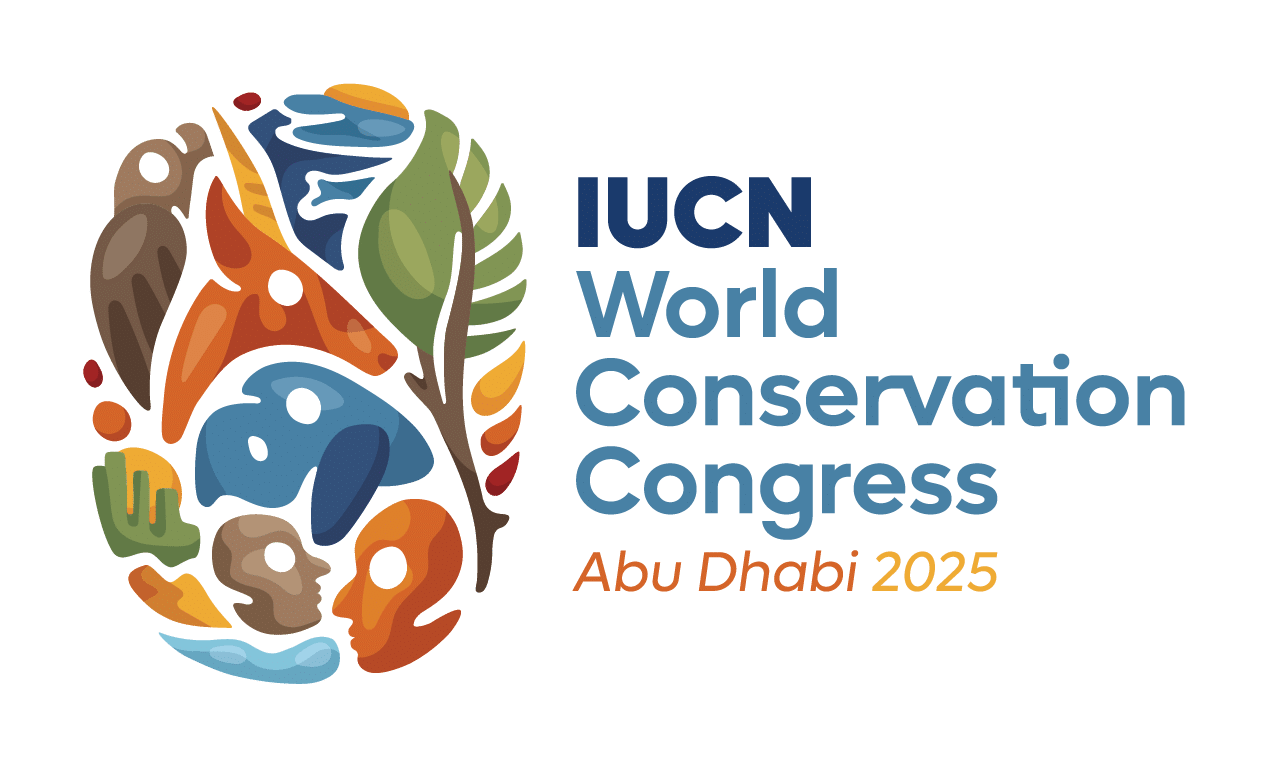
As an active member of IUCN since 2002, A Rocha International brings a distinctive perspective to global conservation as the only international Christian conservation organisation. Our work is intentionally collaborative: together with partners, we support the protection of about 2 million hectares of natural habitats, monitor or study 321 IUCN Red-listed species and 264 nationally listed species, and engage communities through initiatives such as Eco Church, which already works with about 10,000 churches and aims to reach 40,000 in the coming years. In addition, more than 150,000 people are reached each year through our environmental and theological education programmes.
1. The Exhibition
2. The Forum
3. The Members' Assembly
Daily updates from the Congress
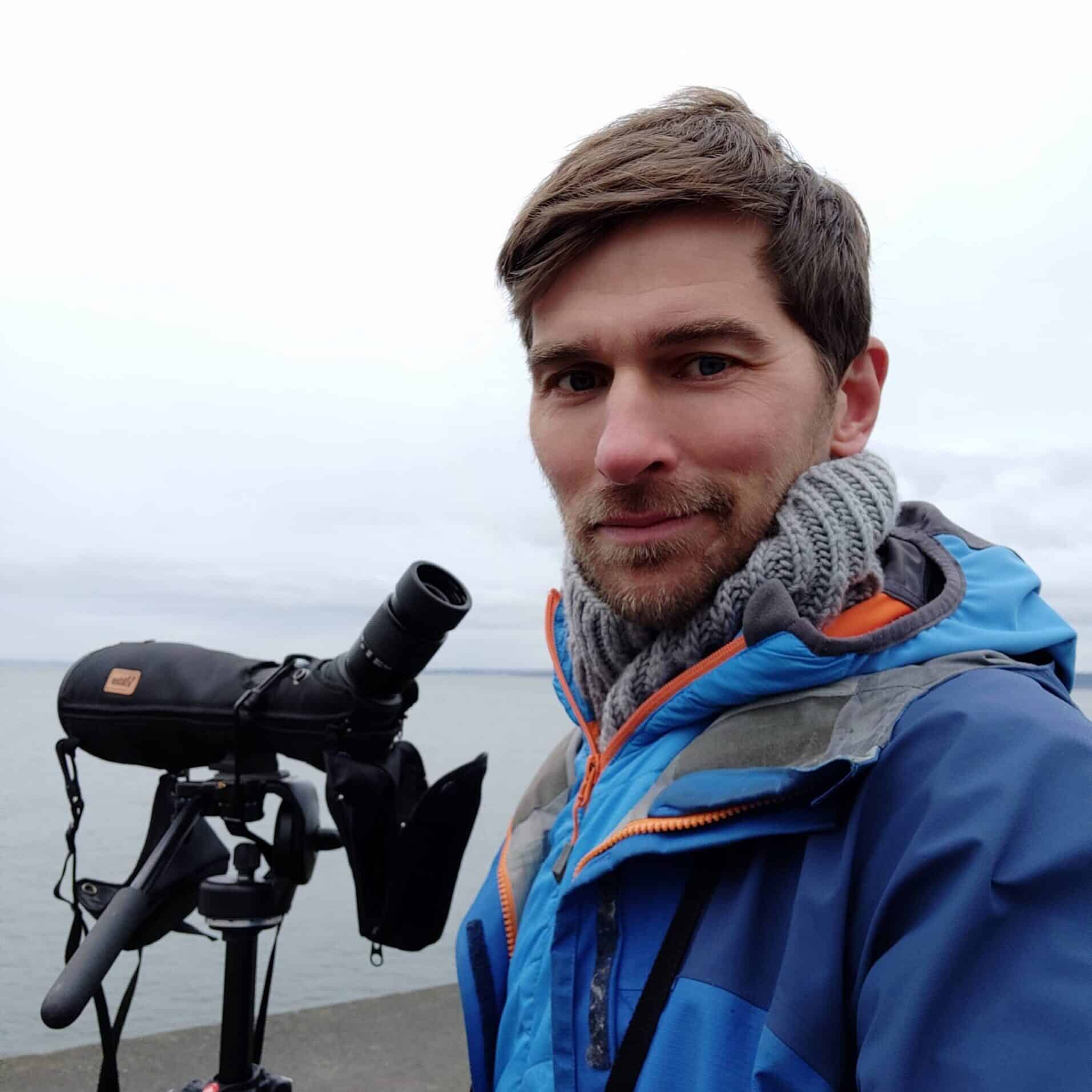
Daily updates from our Conservation Practice Lead, Nicholas Warren, who is attending this event, will be posted here and on A Rocha International’s Instagram stories.
09 October 2025
Day 1 – A diversity of people to protect the diversity of life
Nature knows no borders — and neither should our efforts to protect it. That spirit of cooperation filled the air today as the International Union for Conservation of Nature (IUCN) opened its Congress, the once-every-four-years gathering where the global conservation community comes together to listen, learn and act.
Representatives from the thousands of IUCN member organizations, including governments, businesses, NGOs, Indigenous peoples and youth networks, have arrived from every corner of the planet. Hundreds of languages are spoken; thousands of ideas are exchanged. It is a living reminder that a diversity of people is working to protect the diversity of life.
Across the congress floor, conversations spill into every corner — stories of innovation, struggle and success. I met a young New Zealand entrepreneur, Elisa Harley, who has designed biodegradable plant pots to reduce plastic waste currently associated with the planting of millions of trees. Her invention has already earned her a place on the shortlist for an IUCN Award. I wish ideas like hers every success.
At our booth, we’re sharing the story of A Rocha, and the work we do to protect hundreds of species and almost two million hectares of nature worldwide. We are also highlighting our efforts to mobilize churches and Christians to care for the environment.
Visitors from Cameroon, Uzbekistan and Morocco, seeing no A Rocha organizations in their countries on the world map of our booth, ask why not. A few years ago, Sara Kaweesa, the director of A Rocha Uganda, asked us that very same question at an event like this, and now she and her team are doing some great work for nature in Uganda. So, who knows what new seeds might be planted this week in someone’s mind? Being exposed to so many ideas certainly plants some in my mind.
I hope to share a daily update from the congress, so until tomorrow’s post, take care.
Nicholas
10 October 2025
Day two of the conference began with the arrival of ARI’s CEO, Ed Walker. A big welcome, Ed! With his arrival, our team is now complete and ready to continue to both showcase our work and join the conversations shaping this global gathering.
Among the highlights of the day was the unexpected visit from a former donor who sought us out to thank us for our work. Judith Ochieng from A Rocha Kenya and I had both been deeply involved in the pan-African project they supported, so it was with warm hearts that we shared updates and described how the scientific work continues to grow even after the project’s completion.
Another meaningful encounter came with a young French researcher eager to explore the distinctive perspective that a Christian network like ours brings to conservation. His curiosity and openness led to a long, thoughtful exchange about faith, science, and care for the environment.
The conference conversations were equally inspiring. Our neighbours occupying the booth next door, the BIOTOPE foundation, shared an extraordinary story: a team of forty researchers had spent months in the Amazon studying not the forest, but just three single trees standing in the forest —just imagine if 40 people carefully examined three individual trees of your local park or garden – that is what they did but in the Amazon. From the canopy to the roots, they recorded every plant, fungus, lichen, invertebrate and vertebrate living on these trees, uncovering nearly 10,000 species in the process. Their work beautifully illustrates that a rainforest is far more than its trees—it is a symphony of interconnected life.
In the afternoon, the global conservation community gathered to honour Dr Jane Goodall for her lifelong dedication to protecting nature—a moving tribute to her compassion and enduring hope.
Tomorrow, we’ll host our podcast session – “The Missing piece in conservation? Engaging world faiths and worldviews at the grass roots.” – sadly this podcast is only available to conference attendees — but I will attempt to capture the richness of the conversation tomorrow. Until then, good night!
11 October 2025

Organising an event always comes with a flutter of nerves. You can have the best plan in place, but until it unfolds on the day, there’s always that quiet question: will it all come together? Today, I can honestly say—it did. Our speakers brought great depth and breadth of knowledge, and I would like to begin by introducing and thanking them. A heartfelt thank you to an excellent panel: Bas Verschuuren (Wageningen University and Co-Chair of the IUCN Specialist Group on Cultural and Spiritual Values of Protected Areas), Chantal Elkin (Head of WWF’s Beliefs & Values Programme), Dr. Dave Bookless (Head of Theology at A Rocha International), Lutfi Radwan (Islamic Foundation for Ecology and Environmental Sciences – IFEES), Marc Foggin (founder of Plateau Perspectives, working on community-based stewardship and Indigenous worldviews in Central Asia), and Alison Ormsby (researcher on sacred natural sites in Africa and India). And a special thank you to Judith Ochieng from A Rocha Kenya for hosting the event so gracefully.
The discussion unfolded in four parts: Why Faiths & Worldviews Matter, Stories from Practice, Challenges & Opportunities, and Looking Ahead. It opened with reflections on how engaging faiths and worldviews at the local level is essential, as these shape the values of more than three-quarters of the world’s population and remain an underused force in protecting nature. Faith influences what people love and, ultimately, what they protect. It was noted that many conservation organisations work in deeply religious contexts and that ignoring faith perspectives would be a missed opportunity, given the significant conservation successes already achieved through partnerships with faith leaders.
The conversation also touched on how faith can offer a counterpoint to market forces driven by greed, reminding us of the importance of respect for life. Examples from the field illustrated this vividly: Tibetan nomads who see the land as part of their identity and wildlife as precious, Muslims fishers along the east African coast, Christian communities in the UK and India whose faith-inspired initiatives have led to large-scale conservation action. Together, these stories revealed that the deepest conservation work happens when ecological knowledge is joined with moral and spiritual understanding.
There was also an acknowledgment that many major faiths have been slow to engage with environmental issues, but the historic divide between science and spirituality is beginning to erode. Speakers emphasised that people—and the worldviews that guide them—are central to effective conservation. The session closed with a shared call for a new kind of collaboration, one that treats faith communities as equal partners and recognises that caring for nature is both a scientific and a moral responsibility. The discussion left participants with a sense of openness and invitation: a call to unite with those doing good work and to extend the table of conservation to include every worldview committed to the flourishing of our shared planet.
The audience feedback was overwhelmingly positive:
“Thank you all for this session! It was truly very informative and, on occasion, eye-opening.”
“Thank you very much for this enriching dialogue!”
I hope to get hold of the recording soon and share it on our platform — this is a conversation that deserves to continue.
12-13 October 2025
There are three parts to this IUCN Congress, and two of them — the Exhibition and the Forum — have now concluded. It has been a rich and intense few days, aptly described by Ed, our Executive Director, as “a blizzard of stimulation.”
From an A Rocha perspective, two things stand out and have truly warmed my heart.
First, we bring something distinctive. Many people came to meet us because of the unique niche we occupy at the intersection of faith and conservation — a space that is often left empty, yet, as our podcast reminded us, is so vital.
Second, we are doing good work. The consistent feedback I heard from partners and donors was one of deep appreciation. People sought us out to share their gratitude and to explore new ways of collaborating. This affirmation means everything, knowing how seriously my colleagues and I approach our work. We are intentionally collaborative, engaging with people of all faiths and none, so it’s heartening to receive this encouragement from the wider conservation community.
Linked to this, I’d like to thank the IUCN for doing such an excellent job in bringing together such a diversity of people united by their care for the diversity of life. Thank you for creating that vital space.
Finally, out of all the ideas and perspectives I have been exposed to, perhaps the most strategic conversation I had for my work was with Willem Ferwerda, the inspiring founder of CommonLand, and his colleague Chantal Van Ham. We discussed their landscape restoration framework built around 4 Returns, which aligns closely with A Rocha’s own landscape approach, recently shortlisted for the Earthshot Prize. I look forward to learning from their deep experience going forward.
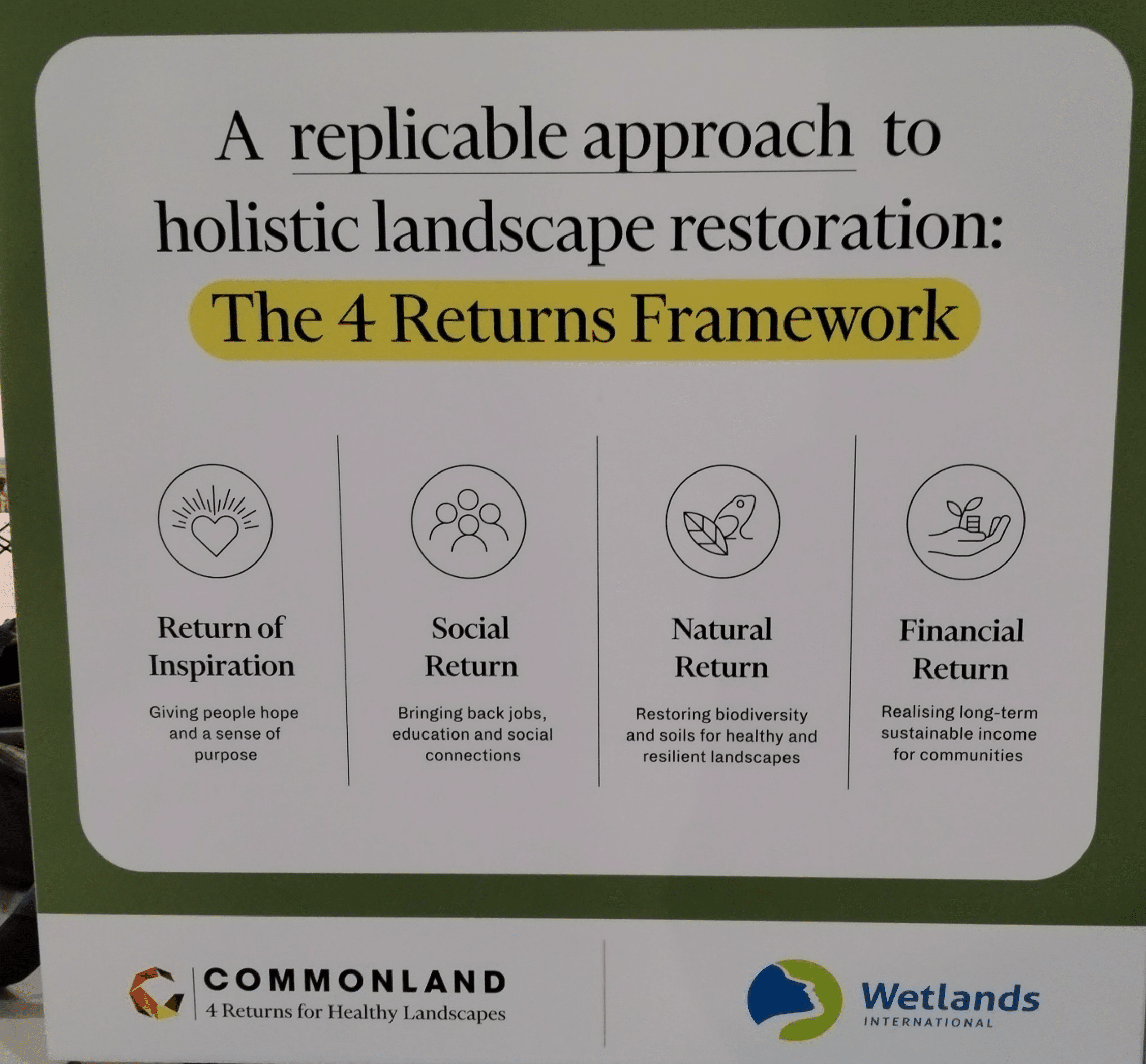
We are now moving on to the assembly part of the congress – I’ll be blogging on that next.
14-15 October 2025
Day 6 & 7 – The Assembly – a somewhat lengthy but incredible democratic process
It is quite an experience to be in a vast hall filled with IUCN members gathered to debate and vote on motions. The days are long, often spent in a dark room reviewing and voting on each motion. At times, the process feels slow—points of order are raised, discussions extend—and you find yourself wishing things would move more quickly. Yet when the votes are finally cast and the results come in, that impatience fades. You realise you’ve been witnessing a democratic process that deserves both time and respect.
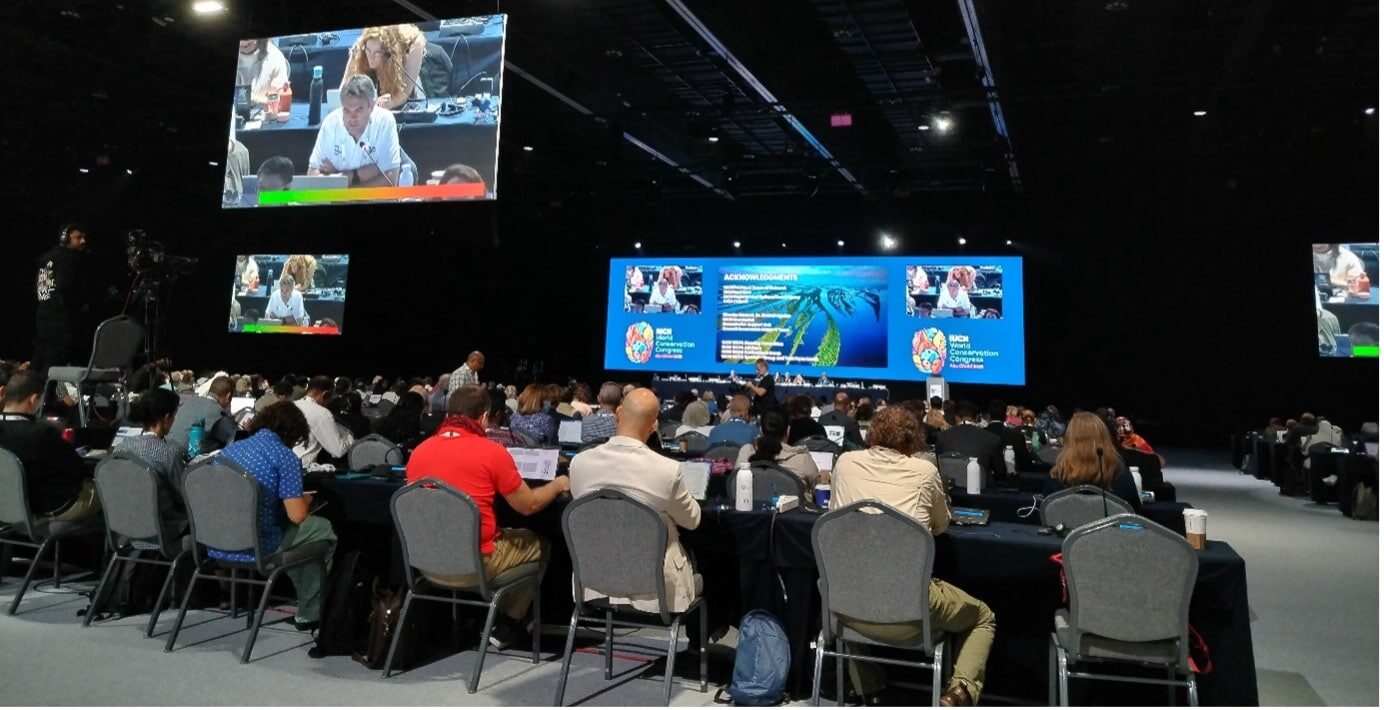
Long hours passing motions at the IUCN.
The motions being debated span the breadth of IUCN’s work—terrestrial ecosystems and restoration, marine and freshwater conservation, climate action, species protection, governance, and equity. The outcomes will help shape the direction of global conservation efforts for the next four years.
But the Assembly is also a place of celebration. This year’s IUCN Awards honoured outstanding contributions to conservation:
- The John C. Phillips Memorial Medal was presented to Hon. Marina Silva, Brazil’s Minister of Environment and Climate Change, for her lifelong leadership in environmental protection and policy reform which are helping to protect the Amazon forest for example.
- The Harold Jefferson Coolidge Memorial Medal was awarded to Dr. Simon Stuart, a former Executive Director of A Rocha International, in recognition of his transformative impact on global species conservation, particularly through his work on the IUCN Red List and amphibian conservation.
- Honorary Membership of IUCN was conferred upon Dr. Sylvia A. Earle, who gave an inspiring acceptance speech, along with Mr. Jeffrey McNeely and Dr. John Robinson, all celebrated for decades of dedication to ocean conservation, global strategy, and international wildlife protection.
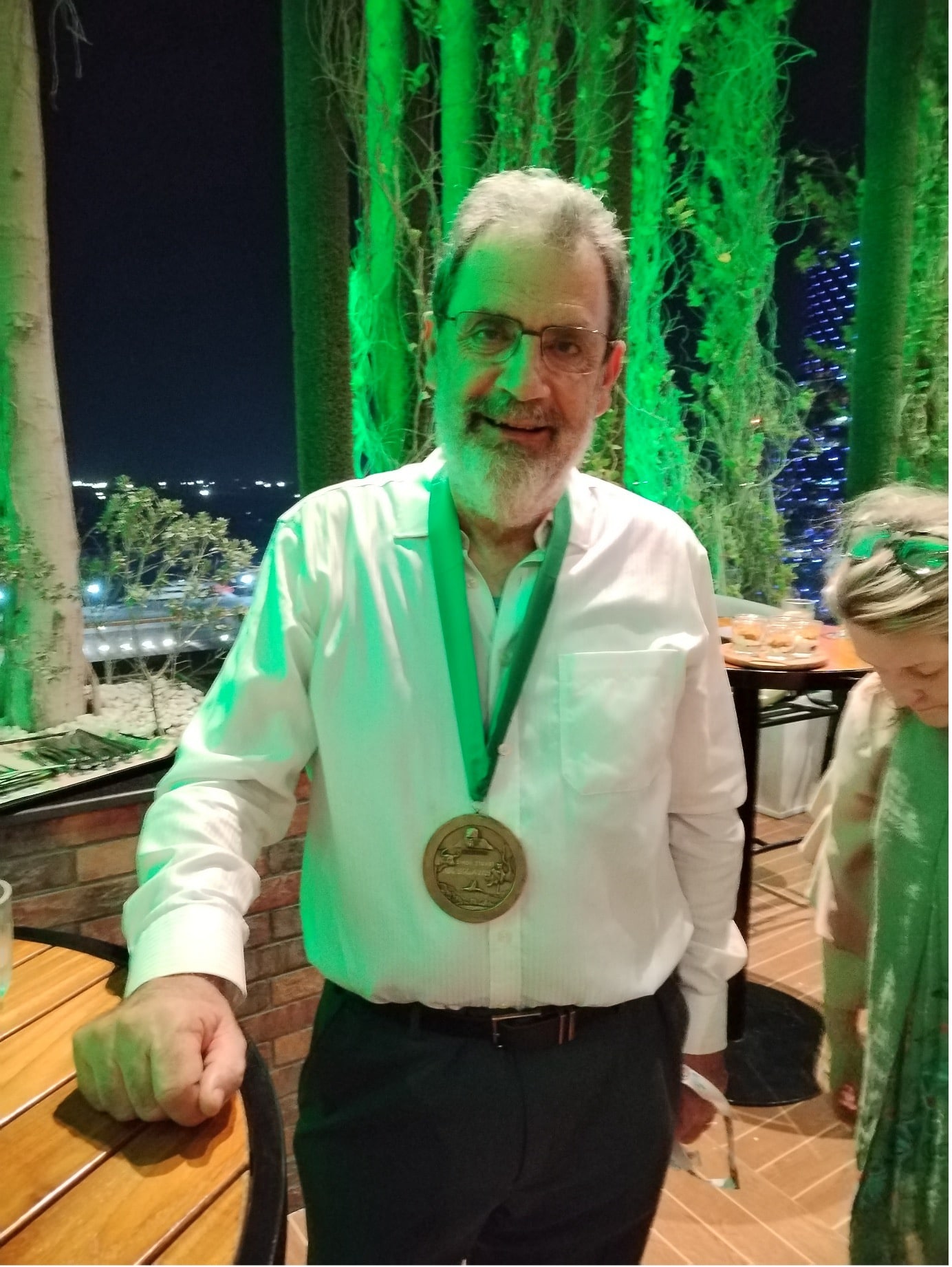
A huge congratulations to all these inspiring people.
Tonight, I head home, attending this Congress has been immensely positive. Across its three parts, it has been a rich, encouraging experience. I hope my reflections have helped make the IUCN Congress a little less opaque and more accessible.
Personally, I leave feeling deeply affirmed—both to be part of this global movement and to see A Rocha’s distinctive contribution recognised within it.
Prayer
Creator God,
We pray for a fruitful exchange of ideas at the IUCN World Conservation Congress. Cultivate hope, resolve and creativity in all the participants. Help us take ambitious action around the world to end the destruction of biodiversity and creation.
Lord, the earth and all who dwell in it are yours. You sustain every created thing with your love. We repent of the ways we have harmed your creation: in knowledge and in ignorance, through our actions and our inaction.
Infuse our efforts with your love for creation. In places where the swallow cannot find a home, where corals are bleached, where flowers are trampled, let abundant life thrive once again.
May a vision of a world where nature flourishes be realised in our lifetimes.
Amen.
The Missing piece in conservation?
Engaging world faiths and
worldviews at the grass roots
We will be hosting a live recording of an IUCN WCC Podcast on 11 October (Venue to be confirmed). This podcast brings together leading faith-based and conservation organisations who offer their insights into how their work with faith groups and through different worldviews to inspire environmental stewardship and how much more could be done.
“All of society must be engaged if we are to stop the destruction of nature and restore balance to the Earth. Most of the global population, especially in the most biodiverse countries, affiliates with a religious or spiritual tradition, and every faith tradition has teachings that speak to care for nature.
Yet to date, faiths have been a greatly under-represented stakeholder group in conservation, often overlooked in the creation of partnerships that can bring us closer to the communities we work with.
Hundreds of faith-based organisations globally are already active on key issues like climate change, renewable energy, illegal wildlife trade and reforestation.”
Host: Judith Ochieng – A Rocha Kenya
Speakers:
Bas Verschuuren - Co-Chair of IUCN-WCPA Specialist Group: Cultural and Spiritual Values of Protected Areas
Bas Verschuuren (PhD) has over 20 years of applied research experience in international conservation and is currently an assistant professor at the Forest and Nature Conservation Policy group at Wageningen University, The Netherlands. He researches the politics of multiple values, beliefs and worldviews in conservation governance and practice. Bas leads IUCN’s specialist group on Cultural and Spiritual Values of Protected Areas and the Sacred Natural Sites Initiative. Bas published the IUCN Best Practice Guidelines on the Cultural and Spiritual Significance of Nature in Protected Areas as well as over 50 book chapters, scientific articles and five books with a focus on the cultural, spiritual and sacred dimensions of nature.
Chantal Elkin - Head of the Beliefs & Values Programme (WWF)
Chantal is the Head of the Beliefs & Values Programme at WWF, which engages with religious and spiritual partners in conservation. Prior to working with WWF, Chantal was the Director of the Wildlife & Forests Programme at the British-based NGO, the Alliance of Religions and Conservation (ARC). Before her focus on faith and environment, Chantal spent eight years with Conservation International, managing the Indo-Burma and Wildlife Trade programmes, working primarily in Asia. From 2018 to 2022 she was President of the Society for Conservation Biology’s Religion and Conservation Biology Working Group.
Dave Bookless – Head of Theology (A Rocha International)
Dr. Dave Bookless is Head of theology for A Rocha International and teaches and writes globally on creation care. He has a PhD from Cambridge University on the value of wild nature, comparing the approaches of biblical theology and conservation biology. His biblical overview on creation care, Planetwise (IVP, 2008), has been translated into several languages, and he’s also written and contributed to over 20 other books, including The Oxford Handbook to the Bible and Ecology. Born and raised in India, Dave is also a qualified bird ringer / bander, and lives in multicultural Southall, London, where his wife Anne pastors an Anglican church.
Lutfi Radwan – Islamic Foundation for Ecology and Environmental Sciences (IFEES)
Lutfi Radwan has a degree in Geography and Arabic from London University (SOAS) and subsequently completed a PhD at Oxford University. He went on to lecture at Oxford at the same time undertaking research and consultancy in the Middle East and West Africa for various public agencies (FAO, UNDP) and private agricultural development companies, specialising in dryland reforestation and irrigated horticultural production. More recently he changed his focus from global to local and sold his house to move onto a 43-acre site north of Oxford where he has established Willowbrook organic farm.
Marc Foggin - Plateau Perspectives
Marc Foggin works for Plateau Perspectives whose mission is to promote sustainable community development and environmental protection on the Tibetan Plateau and in the surrounding mountain regions of greater Central Asia. He will speak to the worldviews held by pastoralist and nomad groups in the region, and more broadly about issues of place, sense of identity, and relational values amongst Indigenous and other local communities whose lives and livelihoods instil in them a deep appreciation and sense of attachment to the land and biodiversity. Working together on the basis of shared relational values, rather than instrumentally, has served as a point of contact both strategic and genuine for building conservation partnerships across vastly different cultural backgrounds.
Alison Ormsby – Cultural Ecosystem Services of the Sacred Groves of Kandhamal, Odisha, India; ‘Case Studies in the Conservation of Nature through Faith’.
Alison Ormsby has a PhD in Environmental Studies and was a professor of Environmental Studies for 20 years. She is a human ecologist with 30 years of experience working on topics including people and protected areas, environmental education, community science, and sacred natural sites. She has conducted research on sacred forests in Sierra Leone, Ghana, and India. She is a member of the IUCN’s Specialist Group for Cultural and Spiritual Values of Protected Areas, and has numerous publications about her work. She is currently the Forest Specialist with Adventure Scientists.